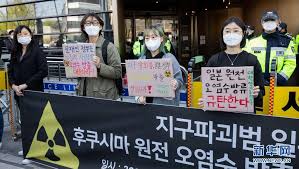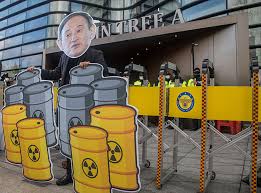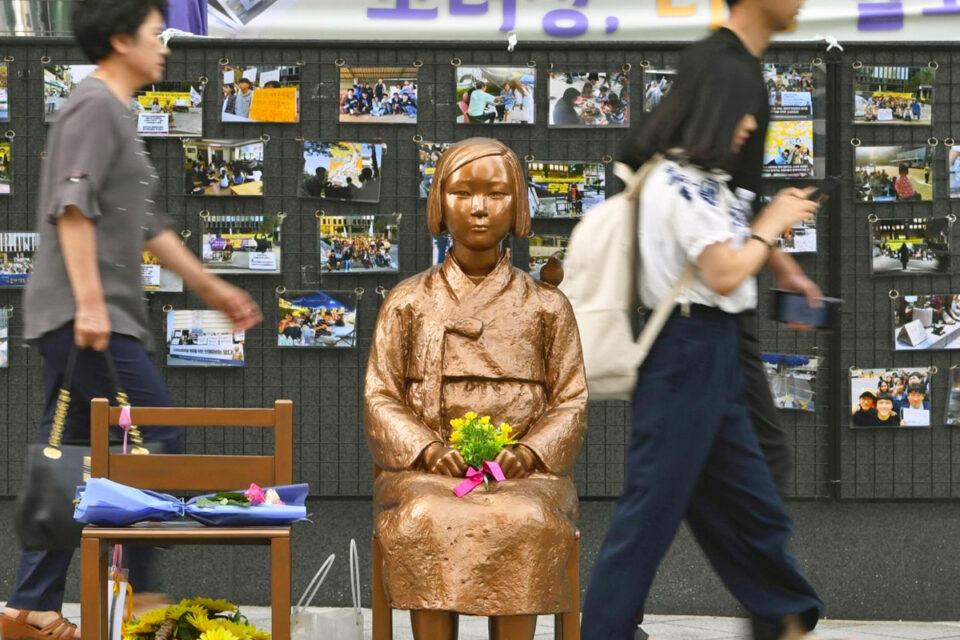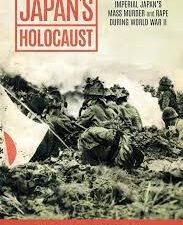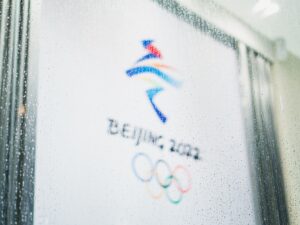From early July to late September, I traveled around Korea by bicycle. Since I was camping with a tent, I think I was able to hear some of the honest words of ordinary people. My Hangeul skills are not so good, though, as I started learning it on my own after I retired. At the time, Korean TV news programs were reporting daily on the opposition movement against the discharge of treated water from the Fukushima nuclear power plant into the ocean, speeches by opposition politicians, and statements of opposition by various groups. What was disconcerting to me was that every TV station used the term “contaminated water” (onyomus) to describe the “treated water. TV stations, which are supposed to be neutral, called it “onyeomsu,” following the propaganda speech of Lee Jae-myung of the “United Democratic Party of Japan. This is the same as the Chinese government reporting Fukushima contaminated water (fudao uranshui). We questioned the biased reporting attitude of the media. A South Korean public opinion survey in early July showed that over 90% of respondents were opposed to the release of contaminated water and were concerned about the health hazards caused by the release of contaminated water. The media, together with the opposition parties, had been working together to arouse public opinion against the discharge of contaminated water from Fukushima.
Chinese and Korean Experts Recognize that Treated Water from Fukushima Nuclear Power Plant is Completely Safe
July 6. He had just attended an academic conference held in Seoul by researchers from Japan, China, and South Korea. He said that the participants from both countries did not make any comments on the Fukushima treated water issue. He explained that the safety of Fukushima treated water is so clear among experts that there is no room for debate, so it is not even a topic of conversation. July 16. A pair of high school sophomores met at Hyangkyo (a local Confucian school in the Yi Dynasty) in Iksan, Jeollabuk-do. They laugh as their high school teacher tells them that this summer vacation (Yeolm Panhak) is an important time to decide who will win or lose in next winter’s college scholastic ability test (a.k.a. Shunengsunung). These bright girls understood that the opposition campaign against the Fukushima treated water was political propaganda. On the other hand, they were convinced that the Fukushima contaminated water was harmful because of the daily reports on TV and newspapers about the opposition campaign against Fukushima contaminated water. They never want to eat Japanese seafood, and their mothers will not buy seafood after the Fukushima water contamination issue was in the news. A group of four high school girls who came to the Iksan Museum of Modern History for a tour said that they were against ocean discharge, that Fukushima-contaminated water is dangerous, and that it is unacceptable for Japan to force cheap ocean discharge. On the other hand, they said they did not know about oceanic discharge from Chinese and Korean nuclear power plants. When the author was explaining the IAEA report, a former high school teacher, a museum commentator, interrupted and denied it with a grim expression, saying, “The IAEA fabricated the report in favor of Japan with bribes and political pressure from the Japanese government. If it were really safe, they would store Fukushima contaminated water in a lake in Japan. The reason they don’t do that is because it is harmful,” he asserted loudly. The high school students nodded in agreement. The delusion and falsehood that the IAEA report was fabricated with bribes and undue pressure from Japan seems to have been propagated quite widely in Korean society, and I heard it again and again during my stay in Korea. “Koreans believe in information that is material for the anti-Japanese movement, whether it is a hoax or a conspiracy theory. Since there is a common understanding that anti-Japan is right, it is easy for hoaxes and conspiracy theories that are convenient for the anti-Japan movement to spread and permeate Korean society,” he analyzed.
On July 16, an elite woman in her late 20s working for Korail (Korea Railroad Corporation). She said she was vaguely concerned about the treated water from Fukushima, but did not know the scientific basis. She said she has never thought about it carefully because she is too busy with her daily life to listen to the news. July 22. A woman working at an arts and crafts exhibition center in Jeonju expressed concern that the release of contaminated water from Fukushima is a serious life-threatening issue. On the other hand, she is still too busy to understand the scientific basis. However, she broke off the conversation, saying that she was also against it because the Korean people were very much against it. She seemed to be concerned about being seen and did not want to talk any further. I sensed in her mood the pressure of Korean society’s refusal to publicly declare that the treated water from Fukushima was safe, which was a reaction to the boycott of Japanese products in Korean society four years ago in response to restrictions on Japanese exports of semiconductor manufacturing materials to South Korea. At that time, intense peer pressure swept the entire society, with people saying they could not drink Japanese beer or canceled their trips to Japan out of concern for their neighbors.
Intellectuals point out the public sentiment that “anti-Japan is absolute righteousness
July 27. According to Mr. K, Koreans have been deceived by politicians since Rhee Syngman, so they do not trust the words of the government and administration. He also explained that “Japan as a nation and the Japanese government” from the colonial period to the present are absolute evils that the Korean people must always deny. Even Koreans who love the Japanese people and Japanese culture say that their feelings toward the Japanese nation and government are hatred and distrust, and I recall that a Korean woman in her late 40s, a high school Japanese teacher I met in Nonsan City on July 18, described the same deep-seated anti-Japanese righteous national sentiment. She told me that supporting the Japanese government is considered “pro-Japanese” and an object of contempt in Korea. In Korean, “pro-Japanese” means a traitor who cooperated with Japan’s colonial rule. The term “pro-Japanese” is synonymous with “hankan,” the Chinese collaborators against Japan, and “kollaboratur,” the French collaborators against the Nazis. Even today, politicians and celebrities who support the policies of the Japanese government are labeled as “pro-Japanese” (= traitors) and lose their political life and social prestige. Korean nuclear experts and scientists are silent on the Fukushima treated water because if they publicly declare the safety of the Fukushima treated water out of conscience as scientists, they will be labeled as pro-Japanese by the Korean society and suffer a storm of bashing. He also asserts that the comfort women issue, the consignment agreement issue, and the Fukushima contaminated water issue are all along the same line. In any case, he says, “Korean justice” is to question and deny everything the Japanese government does.
Why does President Yun not have the support of the people?
According to Mr. K., President Yun’s political decision to make a concession on the conscription issue and allow the release of contaminated water from Fukushima violated the Korean people’s sense of justice and is a national disgrace, which infuriates ordinary Koreans. On the other hand, Koreans are well aware that the Japanese government and the Japanese people hold President Yun in high esteem. It is no wonder that President Yun’s approval rating has been stagnant at around 30% (while the disapproval rating is over 50%), as Mr. K explains: “Without understanding this irrational sense of justice among the Korean people, the Japanese government and Japanese people will not properly recognize the Korean people’s reaction to the Fukushima treated water issue,” he concludes.
An American English Teacher Couple’s View of the Korean People’s Fukushima Treated Water Rhapsody
July 30. I had a pleasant chat with an American couple in a park in Gwangju City. They are assistant English teachers at an elementary branch school in the suburbs of Gwangju. They have been in Korea for a year and a half. They commented that Korea is a strange society with strong peer pressure. For example, most students wear black T-shirts to school even though they are free to dress as they please in elementary schools. He also said that young Korean women wear the same kind of makeup, making it difficult to tell them apart. He said that the hysterical and too much emotional opposition to the Fukushima treated water is incomprehensible and unbelievable in a developed country. He said that the people’s tendency to be easily influenced by false rumors and propaganda is very dangerous.
Anti-Japan Righteous Geezer’s Opposition to Fukushima Contaminated Water and Historical Title to Tsushima Island
July 28. I was enjoying the cool of the evening chatting with five or six middle-aged local men and women in a pavilion in Junchang, a famous production area of gochijang in Jeollabuk-do Province. One of them, a 75-year-old local man, said he was absolutely against the treated water from Fukushima. He became increasingly agitated as we chatted, and he became furious, foaming at the mouth, claiming that Japan had neither apologized nor compensated for the comfort women issue and the conscription issue, and now was causing problems with the contaminated water from Fukushima. He reiterated that not only Dokdo Dokdo (Takeshima) but also Tsushima (Tsushima) were historically Korean territory. Although I could hardly hear his ranting and raving in Korean, I could understand his point as he repeated proper nouns over and over again. The other locals were listening to the anti-Japanese old man’s remarks in silence, but I could tell from the atmosphere that they were cheering him on in their hearts as he yelled and cursed. It was an evening that made me realize firsthand the thick wall of anti-Japanese justice.
The Calm and Deep Thoughtfulness of a Former Zaibatsu Group Executive from Jeju Island
August 22. Two men in their late 60s approached me at a seaside park in southern Jeju, two childhood friends, one a local net owner and the other an executive of a fishing cooperative. The former was a manager of a major conglomerate group who had recently retired and returned to his hometown, and the latter was a local fisherman. He has been an excellent kid since elementary school,” he introduced in Korean. The three of us chatted over a glass of makgeolli, Korea’s muddy rice wine. One day, the former manager asked me what the Japanese thought about the treated water from the Fukushima nuclear power plant. It was a difficult question, so I explained in English that it was safe and that Japanese people eat agricultural and marine products from Fukushima as usual. The former manager carefully checked the details of my story, breaking it up into paragraphs and telling it to Amimoto in Korean. The amimoto listened with interest and nodded broadly. Then, every once in a while, the amimoto would ask a question. This was a repetitive process. The former manager carefully interpreted the dialogue between the author and Amimoto without expressing any opinions of his own. The former manager continued to expand the topic to include the comfort women issue and the conscription issue, but he consistently remained a neutral and objective interpreter. After a while, the author realized that the former manager had been aware of the views and issues I was discussing for some time through information from Japan and other countries. He seemed to generally agree with the author’s views on various Japan-Korea issues. I was impressed that the head of a zaibatsu group is well versed in foreign affairs, including language skills. I was also impressed by the depth and discretion with which he kept his own opinions to himself and elicited the candid views of Japanese people through dialogue with local influential people. It was an evening in which I was able to experience the wisdom of an international intellectual from the conservative mainstream of South Korea.
A Former Captain of a Foreign Shipping Line’s Judgment on Fukushima Treated Water
August 25. Coincidentally, on the morning of the start of the Fukushima treated water discharge, I met a former captain of a merchant shipping company at the Ocean Expo Memorial Park in Yeosu. Captain Lim still works as a pilot at the port of Yeosu several times a week, and he said that he enjoys trekking overseas several times a year. He was planning to visit the European Alps this fall and Annapurna next year. When asked about the treated water from Fukushima, I explained briefly. He nodded his head in satisfaction and said, “If the water scientifically meets international safety standards and there is no other practical solution, then it is what we have to do. Captain Lim, a man of international experience, financial means, and good health, transcends the narrow dogma of anti-Japanese justice and would have no reason to oppose the release of treated water if it were scientifically rational.
Political Sense of a 75-Year-Old Woman President of a Women’s Clothing Manufacturing and Sales Company
September 14. Hanam City near Seoul. I was sheltering from the rain under the eaves of a large women’s clothing store when a well-dressed middle-aged woman beckoned to me from inside. She is 75 years old and the president of a women’s clothing manufacturing and wholesale company. She speaks broken English, as if she had done business with the U.S. military when she was young. She can communicate smoothly in Korean and English. He is a critic of South Korean politicians as being of a low level, especially Lee Jae-myung, the leader of the largest opposition party, whom he calls a disgrace to South Korea. He criticized Lee Jae-myung for repeatedly making unscientific statements on the Fukushima treated water both at home and abroad, being rejected by the IAEA, and finally going on a hunger strike to gain sympathy. At the time, numerous allegations against Ri Jae-myung had come to light and she was on the verge of arrest, and the opposition movement over the Fukushima treated water seemed to be on the wane. For her, interest rates and economic trends, which affect sales of women’s clothing, are the most pressing political issues, and she cannot tolerate opposition parties that try to gain public attention with false rumors and delusions. She sincerely hoped that the Korean people would put aside the dogma of anti-Japanese justice and consider the Fukushima treated water issue calmly and objectively with an understanding of scientific findings. The above is a continuation of Part 2.
Ryo Takano
